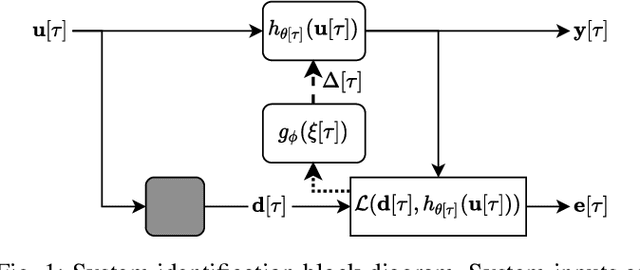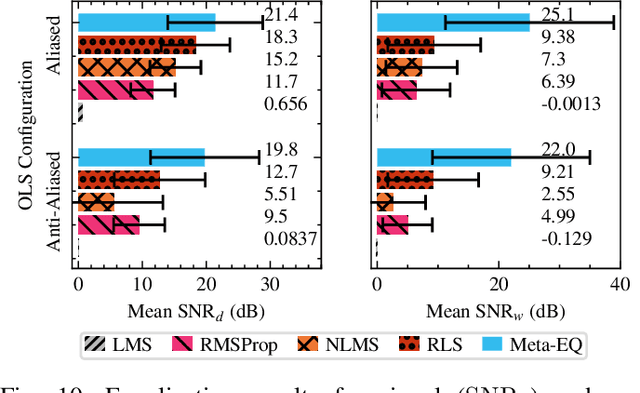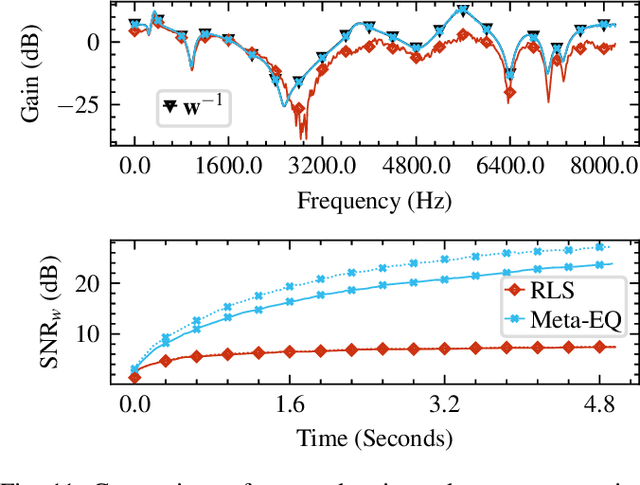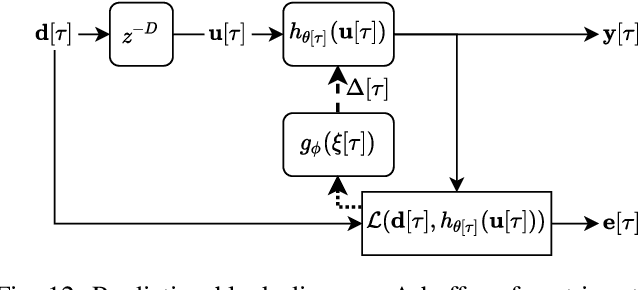Meta-AF: Meta-Learning for Adaptive Filters
Paper and Code
Apr 25, 2022



Adaptive filtering algorithms are pervasive throughout modern society and have had a significant impact on a wide variety of domains including audio processing, telecommunications, biomedical sensing, astropyhysics and cosmology, seismology, and many more. Adaptive filters typically operate via specialized online, iterative optimization methods such as least-mean squares or recursive least squares and aim to process signals in unknown or nonstationary environments. Such algorithms, however, can be slow and laborious to develop, require domain expertise to create, and necessitate mathematical insight for improvement. In this work, we seek to go beyond the limits of human-derived adaptive filter algorithms and present a comprehensive framework for learning online, adaptive signal processing algorithms or update rules directly from data. To do so, we frame the development of adaptive filters as a meta-learning problem in the context of deep learning and use a form of self-supervision to learn online iterative update rules for adaptive filters. To demonstrate our approach, we focus on audio applications and systematically develop meta-learned adaptive filters for five canonical audio problems including system identification, acoustic echo cancellation, blind equalization, multi-channel dereverberation, and beamforming. For each application, we compare against common baselines and/or current state-of-the-art methods and show we can learn high-performing adaptive filters that operate in real-time and, in most cases, significantly out perform all past specially developed methods for each task using a single general-purpose configuration of our method.
 Add to Chrome
Add to Chrome Add to Firefox
Add to Firefox Add to Edge
Add to Edge